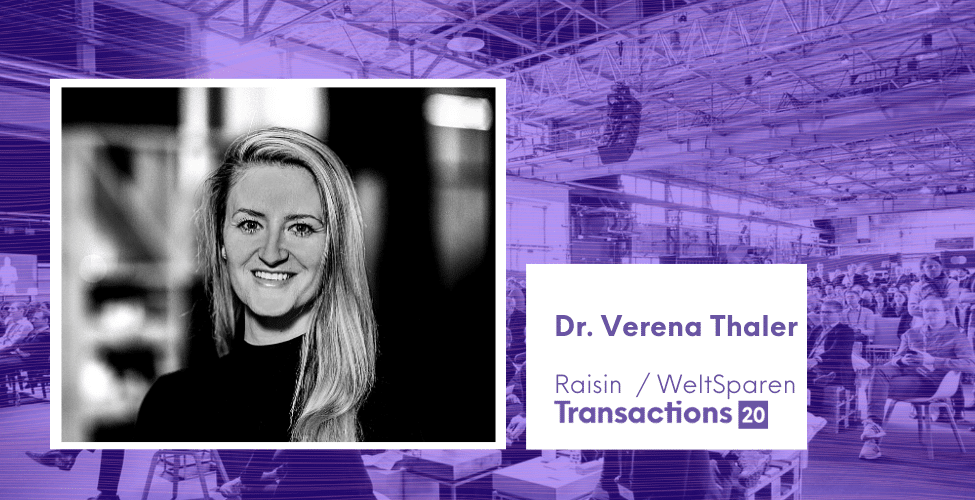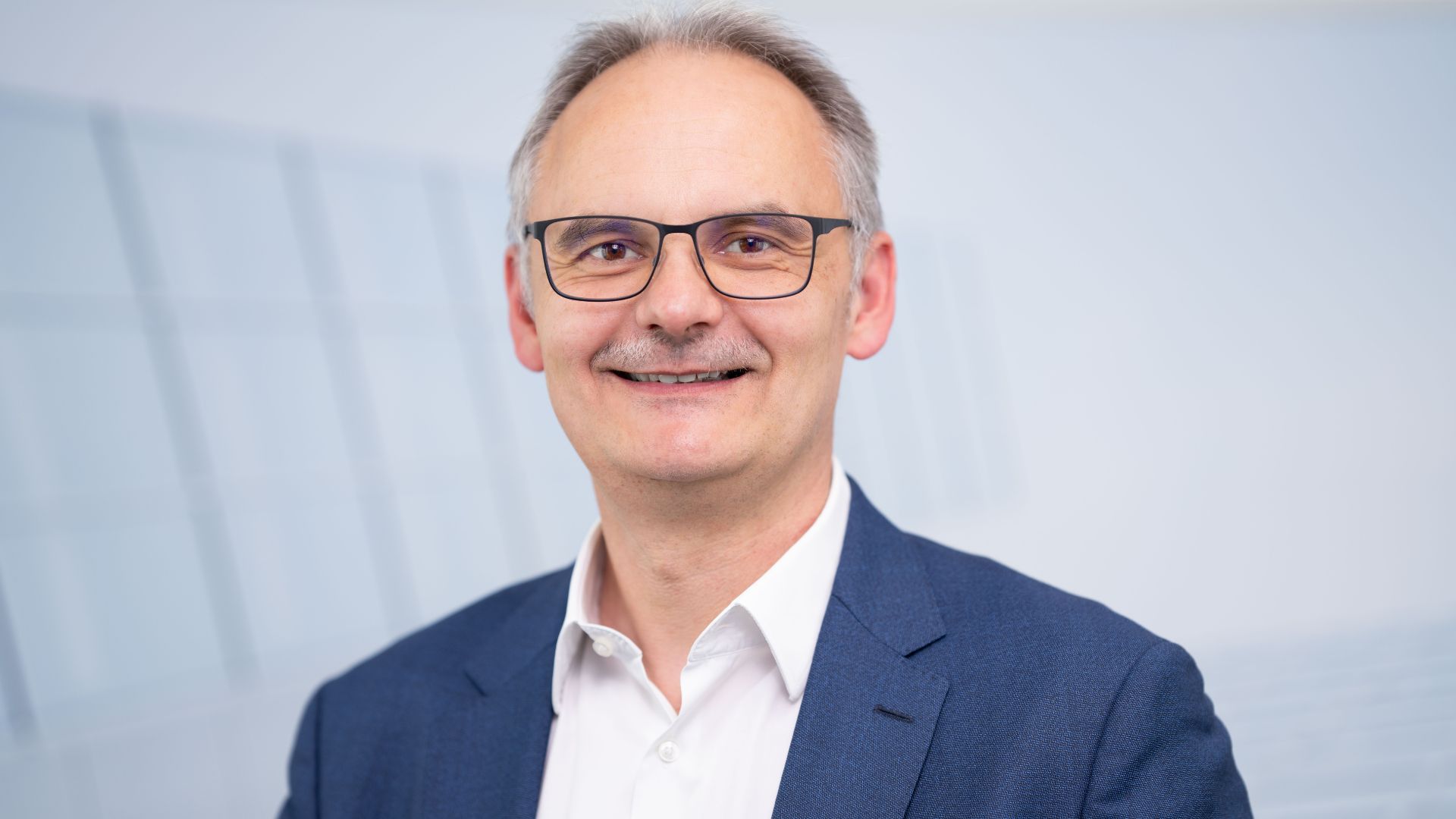Welcome to the Transactions 2020the event at which the most important heads of the Digitization-, Payment– and Banking-industry.
This is a series of interviews with this year’s Transactions 2020 speakers – Today we will be Verena Thaler I’ll be available for questions and answers. Verena is Head of Strategy at Fintech Raisin.
In the industry, it has long been no secret that the Payment & Banking organised event Transactions goes into the second round on November 19! After the big Success of the past year this year again we are pitching the tents in Offenbach near Frankfurt/Main.
At the event the most important heads of the Digitization, Payment– and Banking-industry. Besides the many great participants, an event is only as good as its speakers on stage. The Transactions is one of the few interdisciplinary conferences in the DACH region that offers a stage for lateral thinkers from various industries on the subject of “digital structural change”. We are once again looking forward to national and international stars from the digital business who will give an outlook on the most important trends in the industry.
Who are these great minds #TRX20, you can read about this in the next weeks in our interview series.
This year’s participants include Verena Thalerwho introduces herself in this interview. She discusses on the panel: Data Driven Banking – Datenschatz oder Pandora’s Box?
We are happy about your acceptance for Transactions 20 in November: Please introduce yourself briefly.
I am Verena Thaler, Head of Strategy & Business Development at Raisin. In Germany, our platform for investment under the WorldSaving known.
With my teams I develop individual funding strategies for our partner banks. Through Raisin’s pan-European platforms, these banks gain access to cross-border deposit funding and can thus cost-effectively diversify their funding sources. Furthermore, I am also responsible for the strategic orientation of Raisin.

Since when have you been dealing with the topic of your panel and why are you enthusiastic about it?
I have always found it exciting to derive a hypothesis or concrete conclusion from data points. This is how I came into contact with Data Driven Banking at an early stage. Raisin pursues the goal of constantly improving its services and processes. The analysis of customer behavior on our platform and inquiries from our banking partners are an important element of this. Both enable us to respond to behavioral patterns at an early stage.
For example, it can be seen that customers are breaking off at a certain point in the process. We analyse this carefully and try to find out what the cause is and how we can improve the customer and partner experience at exactly this point. Experience from my time at McKinsey also contributes to this. Among other things, I led projects there that dealt with advanced analytics, for example to anticipate the threat of a customer’s imminent termination.
What expectations do you have as a speaker for the upcoming TRX?
At TRX I would like to exchange views on current trends, developments and challenges. The line-up is impressive, so I’m sure I’ll get good impulses. I am very much looking forward to finally meeting many exciting people from the industry again, either personally or virtually.
The TRX takes place for the second time: What relevance did the event have for you and the industry?
The TRX made a strong first serve. Once again, excellent speakers were won over, which impressively proves the relevance for the industry. I am pleased to be part of it and also to be able to contribute a small part to this year’s TRX.
Adapted to the situation, this year’s TRX will take place for the first time as a hybrid format. What experiences have you had so far with such digital event formats?
I myself recently took part in the Handelsblatt Banking Summit, which was also a hybrid event. I personally am a great friend of personal and chance encounters at events.
I was all the more impressed by how well the exchange also works at hybrid events, for example via chats or virtual coffee breaks. In addition, there are real time advantages through digital participation. The new “normal” of hybrid formats gives us more freedom of choice here – just as it suits us best. I see this as a positive development.
“The new ‘normal’ of hybrid formats gives us more freedom of choice here.”
What questions would you like to ask your fellow panelists yourself?
I’m interested in things I can learn from: What changes have my colleagues observed – for example in terms of customer behaviour – and how do they react to them? Which new business models are currently being tested based on this and which changes are therefore being implemented right now. And last but not least, how do my colleagues deal with the issues of “leadership and motivation” in this new “normality”? I am already looking forward to the exchange!
The TRX takes place in Offenbach. Why should FinTech also be an issue beyond the big hubs?
People all over Germany and the world can benefit from Fintech solutions. Therefore I find it obvious that when choosing a venue, one should not limit oneself to just a few large cities and thus provide valuable impulses and inspiration to smaller centres. After all, it’s basically true that exciting ideas come back when you leave the usual “playing field” every now and then, and perhaps this will appeal to completely different people. It’s the mixture that does it in the end.
Looking back over the year – what has changed massively in your particular sphere of influence? Which of these is positive, which negative?
The most obvious effect of the change is probably in the kilometres that we do not currently fly or drive. In connection with this, the sum total of personal encounters has fallen considerably – much of what we see on our screens today is now happening on the screen. A development that I don’t find bad in general, since many hours in trains and planes are avoided. In terms of quality, however, a personal meeting is hard to beat.

This also applies to the company itself. For more than half a year now, we have been organized predominantly on a decentralized basis, which is changing the entire communication within the company. This includes positive effects and also challenges that we and probably everyone else is concerned with.
Fortunately, not much has changed for Raisin in terms of business success. We continue to find ourselves in a market environment with persistently low interest rates. Here we can continue to offer our customers and partners real added value. If we extend the umbrella even further, the banking industry at European level will be faced with many important decisions. The markets are still fragmented.
But I’m very enthusiastic about the energy with which we have approached the current requirements with Corona. Many aspects of digitisation have been accelerated as a result. It’s fascinating to see how many companies and employees in our industry are just going the extra mile to offer customers an even better service.





